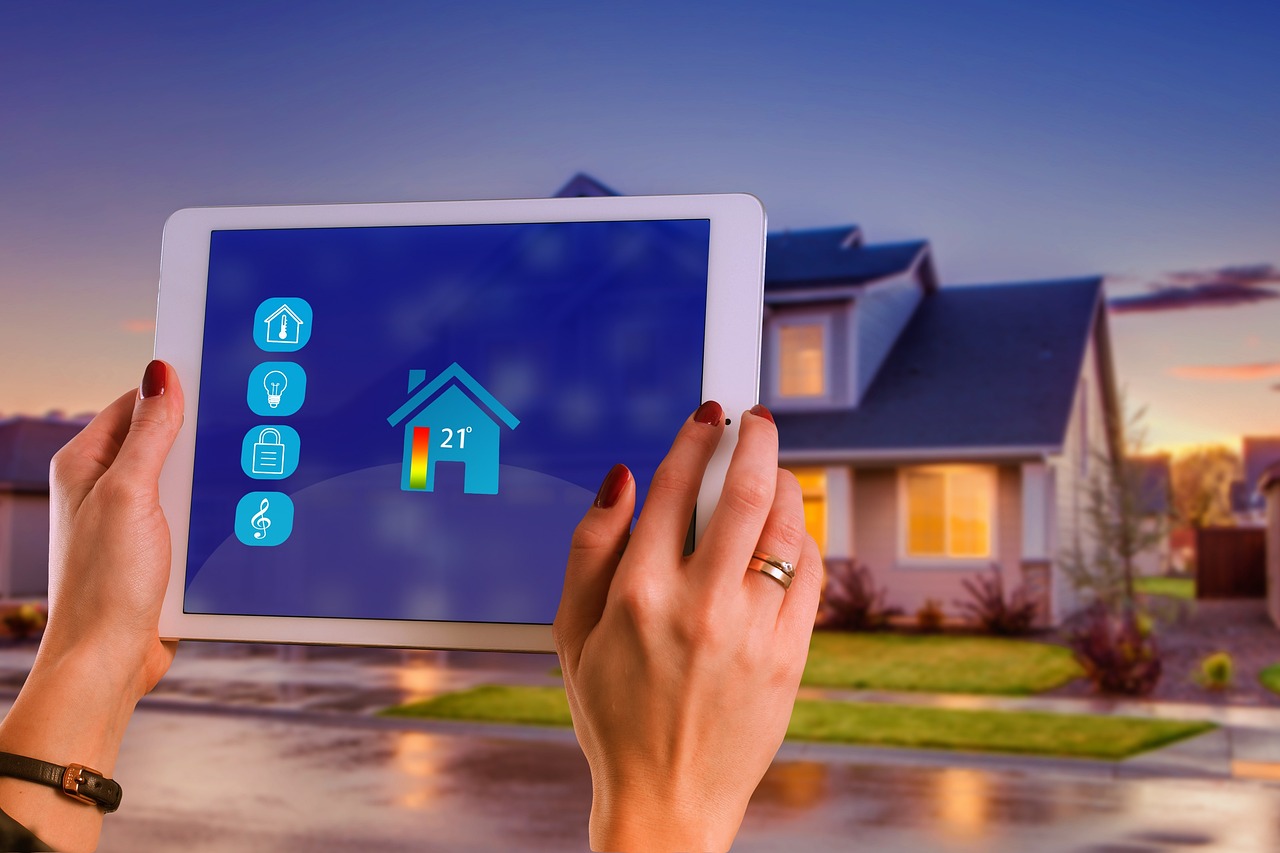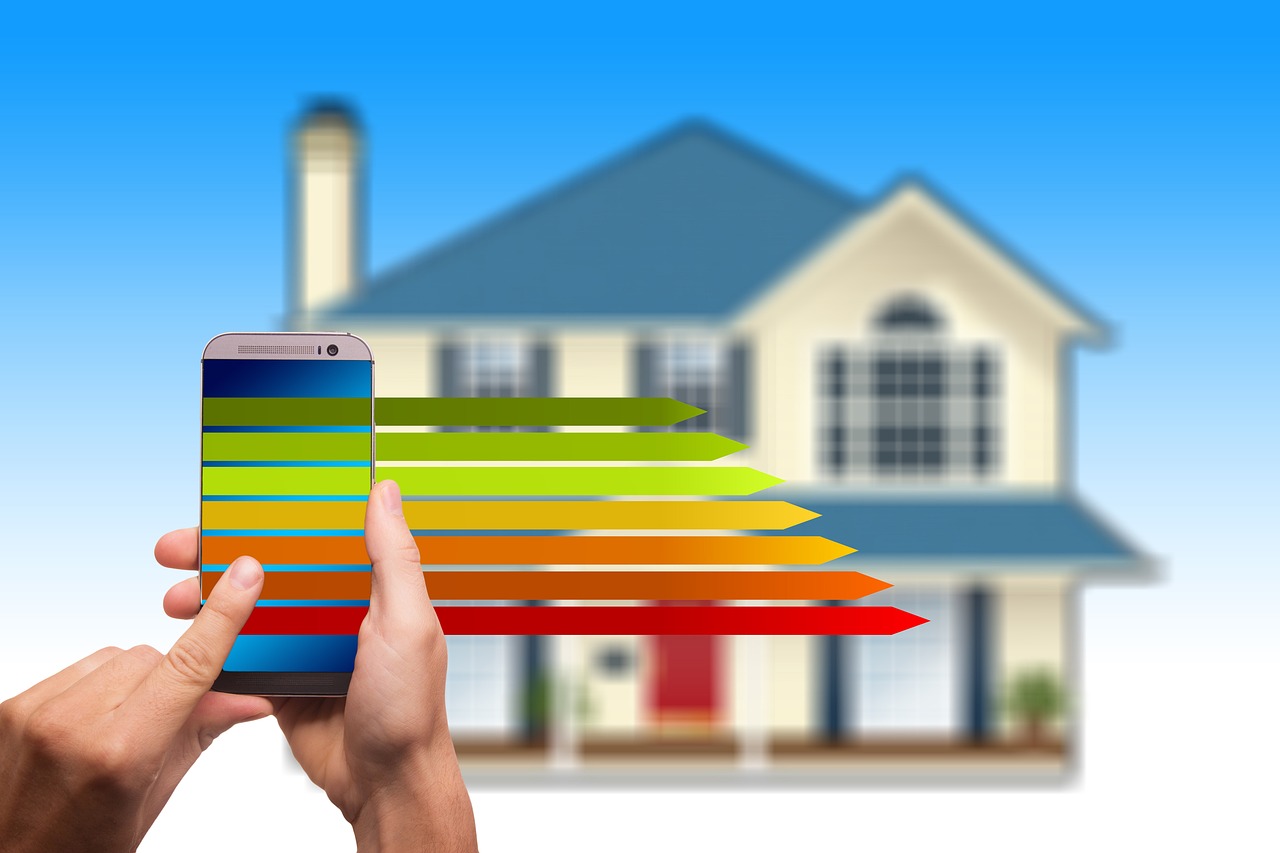In the past few years, there has been a significant shift in the real estate landscape, driven by the rising tide of smart home technology. As we navigate through this era of digital transformation, smart homes are not just a fleeting trend but a pivotal factor in redefining real estate values. Here’s an in-depth look at how smart homes are revolutionizing the real estate industry.
Smart homes are becoming increasingly popular, and it’s not hard to see why. These homes are equipped with advanced technologies that make life easier and more convenient. From controlling the temperature of your home to turning off the lights, smart homes offer a level of control that was once unimaginable. However, the impact of smart homes goes beyond just convenience. They are also having a significant impact on real estate values.
According to a report by ProspectNow, homes with smart home products installed have much more resale value than those without them. In fact, one of the very things used to determine the market value of a home is what features and amenities the property has . Smart home technologies are becoming increasingly popular, and homes with these types of products installed are on the rise . This is because these technologies only add value to a home and save you money in the long run .
Smart homes are also impacting the amount of time homes spend on the market. Homes with smart home products installed tend to sell faster than those without them . This is because smart homes are in high demand, and buyers are willing to pay a premium for them . Additionally, smart homes are more attractive to investors, as they offer more deals and opportunities .
Smart home technologies are changing the way we live, and they are having a significant impact on the real estate market. In this post, we will discuss how smart homes are taking over and how they are impacting real estate values.
#1 What are Smart Homes?
Smart homes are homes that are equipped with advanced technologies that allow homeowners to control various aspects of their home through their smartphone or other devices. These technologies include things like smart thermostats, smart lighting, smart security systems, and more. Smart homes are designed to make life easier and more convenient for homeowners.
#2 How Do Smart Homes Work?
Smart homes work by connecting various devices and appliances in your home to a central hub. This hub is then connected to your home’s Wi-Fi network, allowing you to control these devices through your smartphone or other devices. For example, you can use your smartphone to turn off the lights in your home, adjust the temperature of your thermostat, or even lock your front door.
#3 The Impact of Smart Homes on Real Estate Values
Smart homes are having a significant impact on real estate values. Homes with smart home products installed have much more resale value than those without them . This is because these technologies only add value to a home and save you money in the long run . Additionally, homes with smart home products installed tend to sell faster than those without them . This is because smart homes are in high demand, and buyers are willing to pay a premium for them . Smart homes are also more attractive to investors, as they offer more deals and opportunities .
#4 The Benefits of Smart Homes
Smart homes offer a wide range of benefits to homeowners. These benefits include:
I- Convenience
Smart homes are designed to make life easier and more convenient for homeowners. With smart home technologies, you can control various aspects of your home through your smartphone or other devices. This means that you can turn off the lights, adjust the temperature of your thermostat, or even lock your front door from anywhere in the world.
II- Energy Efficiency
Smart homes are also designed to be more energy-efficient than traditional homes. Smart thermostats, for example, can learn your heating and cooling preferences and adjust the temperature of your home accordingly. This means that you can save money on your energy bills while still keeping your home comfortable.
III- Increased Security
Smart homes are also more secure than traditional homes. Smart security systems, for example, can alert you if someone tries to break into your home. Additionally, smart door locks can be controlled through your smartphone, allowing you to lock and unlock your doors from anywhere in the world.
Smart homes are taking over, and they are having a significant impact on real estate values. Homes with smart home products installed have much more resale value than those without them, and they tend to sell faster. Smart homes are also more attractive to investors, as they offer more deals and opportunities. As smart home technologies continue to evolve, we can expect to see even more impact on the real estate market.
#5 The Evolution of Smart Homes
Smart home technology, once a niche luxury, has rapidly evolved into a key component of modern living. Today, a smart home is not just about controlling lights and thermostats from a smartphone. It represents a comprehensive ecosystem that brings together advanced connectivity, enhanced security, energy efficiency, and unparalleled convenience. This evolution is not just about technological advancement; it reflects a profound change in homeowner preferences and lifestyle aspirations.
#6 Impact Smart Homes on Real Estate Values
I. Increased Property Value
Smart homes are commanding higher property values. A survey by Consumer Reports suggests that smart home features can increase a home’s overall value by up to 5%. This bump in value comes from the premium that buyers are willing to pay for homes that offer advanced technology for security, convenience, and energy efficiency.
II. Attracting Modern Buyers
The modern homebuyer is tech-savvy and values convenience and efficiency. Smart homes align perfectly with the lifestyle of the contemporary buyer, offering seamless integration of technology into daily life. This alignment makes such properties more attractive in the real estate market, often resulting in quicker sales.
III. Energy Efficiency and Sustainability
One of the most compelling aspects of smart homes is their ability to reduce energy consumption. Smart thermostats, LED lighting systems, and energy-efficient appliances are not just selling points; they are long-term investments in sustainability. This efficiency is increasingly important to buyers who are environmentally conscious and looking to minimize their carbon footprint.
IV. Enhanced Security Features
Security is a paramount concern for homeowners. Smart homes equipped with advanced security systems, including smart locks, surveillance cameras, and alarm systems, offer a higher sense of security. This enhanced security is a significant factor in boosting the property’s appeal and value.
V. Future-Proofing Properties
As technology continues to advance, properties that are already equipped with smart home technology are seen as being future-proof. This aspect makes them a more attractive investment for potential buyers who are looking to avoid future upgrades.
VI. Rental Market Appeal
Smart homes are not just affecting the buying and selling market; they are also transforming the rental market. Rentals with smart home features can command higher rent, and landlords are increasingly investing in smart technology to attract tenants.
#7 Challenges and Considerations
While the impact of smart homes on real estate is overwhelmingly positive, there are challenges to consider. The first is the issue of compatibility and obsolescence. As technology evolves, certain smart home systems may become outdated. Another consideration is the potential complexity of these systems, which might be intimidating to some buyers or tenants. Finally, the initial cost of installing smart home technology can be a barrier, although this is often offset by the increase in property value and energy savings.
#8 List of some of the most important aspects of Smart Homes On Property Values
There are plenty of Amazon Prime deals for smart homes. However, here are some of the aspects that we can further talk about:
Increased Property Value: Smart homes can boost a home’s value by up to 5%.
Modern Buyer Appeal: Tech-savvy buyers are drawn to the convenience and efficiency of smart homes.
Energy Efficiency: Smart switches & thermostats, LED lighting, and energy-efficient appliances reduce energy consumption and appeal to environmentally conscious buyers.
Enhanced Security: Advanced security systems in smart homes, such as smart locks and surveillance cameras, increase property attractiveness.
Future-Proofing: Smart homes are seen as future-proof investments, reducing the need for future technological upgrades.
Rental Market Benefits: Smart home features can command higher rents and attract tenants in the rental market.
Sustainability: Smart homes contribute to environmental sustainability through efficient energy use.
Seamless Integration: The integration of technology into daily living enhances lifestyle and convenience.
Smart Home Ecosystem: The comprehensive ecosystem of smart homes includes connectivity, security, and home automation.
Technological Evolution: The rapid advancement of smart home technology reflects changing homeowner preferences and lifestyles.
Higher Resale Speed: Smart homes often sell faster due to their appeal to modern buyers.
Compatibility with Modern Lifestyles: Smart homes align with contemporary lifestyles, emphasizing ease and automation.
Market Differentiation: Properties with smart home features stand out in the real estate market.
Investment in Long-term Value: Smart homes are seen as long-term investments in property value and living quality.
Challenges of Obsolescence: The potential for smart home technology to become outdated poses a challenge.
Complexity for Some Users: The complexity of smart home systems can be daunting for some potential buyers or tenants.
Initial Investment Costs: The upfront cost of installing smart home technology can be a barrier, though often offset by long-term gains.
Impact on Rental Market: Landlords are increasingly adopting smart home features to enhance rental property appeal.
Consumer Reports Survey: Citing the survey that shows the impact of smart homes on property values.
Digital Transformation of Real Estate: Smart homes represent a significant part of the digital transformation in the real estate sector.
Carbon Footprint Reduction: Smart homes contribute to reducing the overall carbon footprint of households.
Attracting Environmentally Conscious Buyers: The green aspect of smart homes attracts buyers who prioritize environmental responsibility.
Technological Convergence in Real Estate: The growing convergence of technology and real estate sectors.
Redefining Home Living Spaces: Smart homes are changing the nature of living spaces, making them more connected and efficient.
#9 The Future of Real Estate and Smart Homes
Looking ahead, the integration of smart home technology in real estate is poised to become the norm rather than the exception. As these technologies become more sophisticated and accessible, we can expect a greater convergence of digital living and real estate. This convergence will not only redefine the value of properties but also shape the very nature of our living spaces, making them more connected, efficient, and secure.




